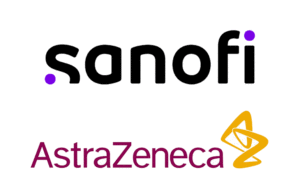 AstraZeneca’s (LON:AZN) and Sanofi’s (Nasdaq:SNY) nirsevimab had 75% efficacy against lower respiratory tract infections resulting from rr (RSV) in a Phase 3 study.
AstraZeneca’s (LON:AZN) and Sanofi’s (Nasdaq:SNY) nirsevimab had 75% efficacy against lower respiratory tract infections resulting from rr (RSV) in a Phase 3 study.
There are currently few treatment options for lower respiratory tract infections stemming from RSV. Two antivirals, palivizumab and ribavirin, are available, while new vaccines are currently authorized.
RSV is the most common cause of lower respiratory tract infections in infants.
AstraZeneca has announced that the immunostimulant nirsevimab is the first potential therapy that could offer sustained protection for an entire RSV season with a single dose.
In the placebo-controlled MELODY Phase 3 trial, nirsevimab had 74.5% efficacy against medically-attended lower respiratory tract infections from RSV in healthy infants.
The Phase 3 study was recently featured in NEJM. Another article in the same journal focused on nirsevimab’s safety profile in the MEDLEY Phase 2/3 study, concluding that it was similar to the safety profile of palivizumab.
“These exciting data show that nirsevimab has the potential to offer RSV protection for all infants, which would be a paradigm shift in the approach to this disease,” said Dr. William Muller, associate professor, pediatrics, Northwestern University Feinberg School of Medicine and scientific director, clinical and community trials, Ann & Robert H. Lurie Children’s Hospital of Chicago. Muller was the primary investigator of the MELODY trial.
AstraZeneca partnered with Sanofi in developing nirsevimab.